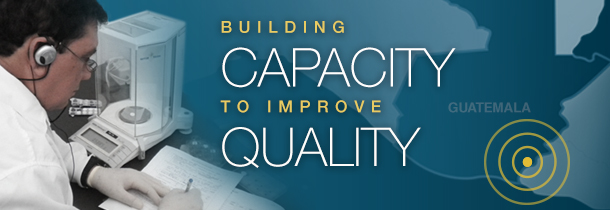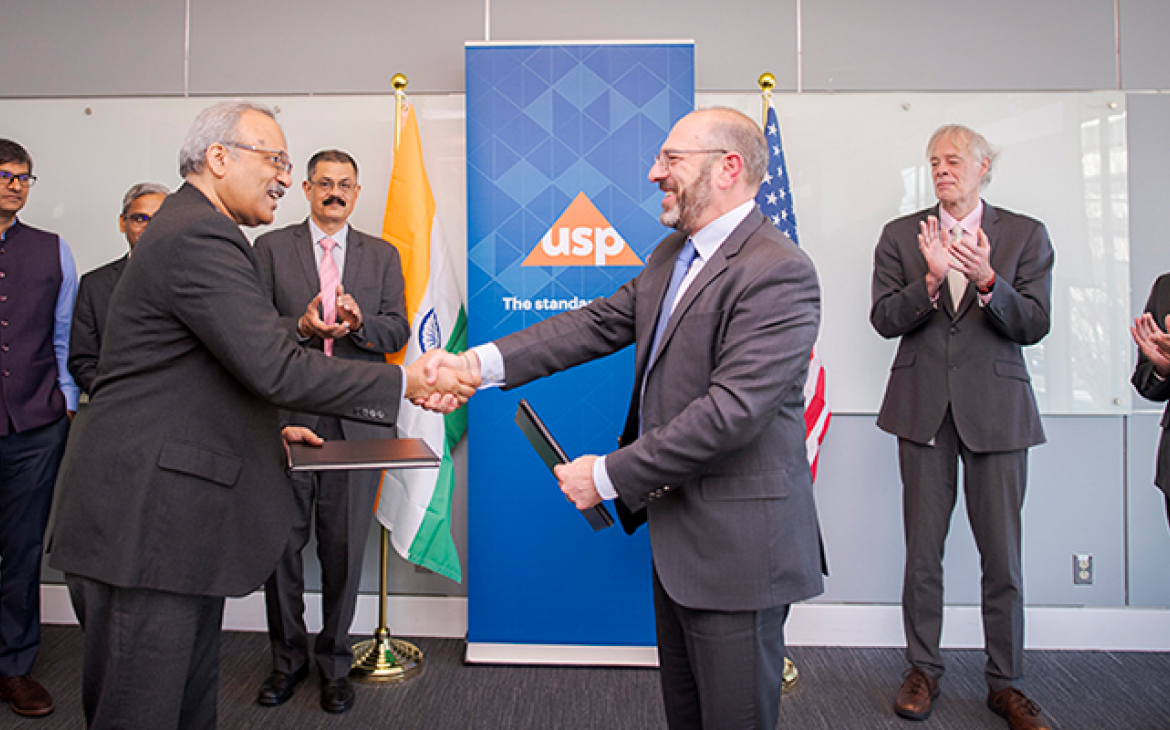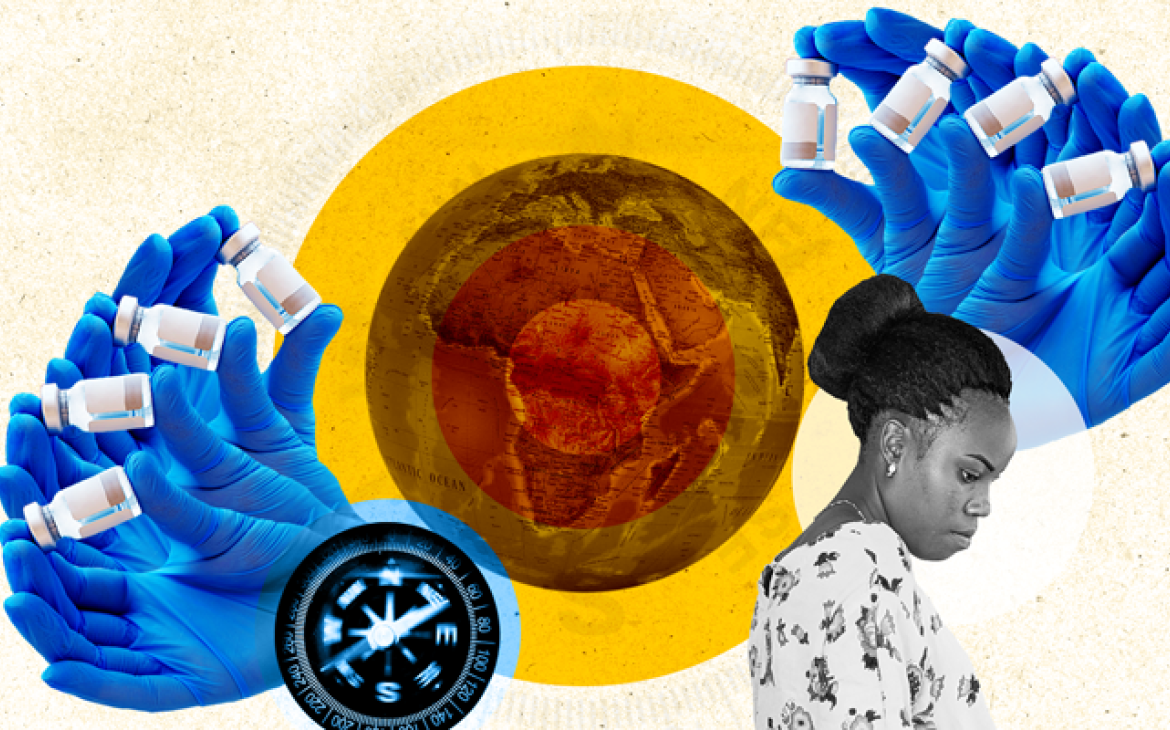
Expanding Laboratory Capacity to Protect Public Health
Guatemala’s official medicines control laboratory (OMCL) has reached a major milestone in its quest to combat the proliferation of poor quality medicines within its borders. The Unidad de Medicamentos from the Laboratorio Nacional de Salud (LNS) in Barcena Villa Nueva has retained their ISO 17025 accreditation, certifying its expanded ability to operate and reliably test the quality of its medicines to world-class standards.
This was no ordinary feat. Like a diploma, this achievement represents much more than what is apparent from the Certificate of Accreditation that now hangs on the laboratory’s wall. The road to building a strong laboratory quality system that is capable of ISO 17025 accreditation is extensive. The time, staff, training, processes, paperwork, improvements, and resources required to attain and maintain it are challenging for many OMCLs, especially those in resource-limited settings. But, to Guatemala’s LNS, the health and safety benefits it offers the public and the Medicines Regulatory Authority (MRA), justify the toil and expense.
Why Strengthen Quality Laboratory Systems?
Some of the world’s toughest global health challenges can be improved by basic, lifesaving medicines—that is, if the available supply is quality-assured. Quality assurance of pharmaceuticals is a major challenge for many countries around the world, including Guatemala. Countries that lack reliable quality assurance systems with functional OMCLs are vulnerable to the proliferation of poor quality medicines.
This was the case for Guatemala. A study conducted in 2011 in Santa Rosa led by Victor S. Pribluda, Ph.D., Manager of Latin American Programs at the Promoting the Quality of Medicines (PQM) program, revealed that 27 percent of sampled medicines failed quality testing. These findings raised concerns not only about the quality of the medicines sampled in the study, but of all medicines in Guatemala’s distribution system.
“The study pointed to extensive gaps in Guatemala’s quality assurance and quality control systems,” says Dr. Pribluda. “We found gaps in the technical capabilities of the OMCL, in storage conditions at central and peripheral facilities, and in quality control and documentary procedures during procurement of medicines. The poor quality of the medicines in the study was likely a result of these deficiencies.”
Many countries, like Guatemala, also faced a shortage of human and financial resources that severely limits the operational capacity of Medicines Regulatory Authorities (MRAs) to undertake and sustain the quality surveillance needed to protect the public from poor quality medicines.
Having a strong OMCL that can independently test the quality of medicines on the market, including those manufactured locally, as well as those imported and donated, will help MRAs and regulatory systems fulfill an essential function: ensuring a supply of good quality, safe and efficacious medicines for the people who need them.
How PQM Helps OMCLs Get Reaccredited
Establishing a strong national control lab with limited resources is very demanding, and getting it accredited to ISO standards is even tougher. But, as Guatemala's LNS showed, with the right strategy and approach, it’s achievable.
According to Donnell Charles, Ph.D., Manager of Laboratory Quality Management Services at PQM who assisted Guatemala’s with its recent accreditation, there are huge benefits to building strong OMCLs that are capable of accreditation.
“The accreditation is a part of a comprehensive, quality systems strengthening plan,” says Dr. Charles. “PQM helps move OMCLs toward accreditation by helping them build sustainable and resilient quality management systems that can perform their essential functions. By strengthening their quality management systems, processes, and procedures, they’re also preparing for accreditation. They may pursue it after first examining its pros and cons, and then decide to seek ISO accreditation and/or WHO prequalification afterwards.”
“Accreditation allows laboratories to exceed their vision and expand their possibilities,” says Dr. Charles, which is something the PQM program ultimately hopes to help its partners do with regard to quality assurance of medicines in their country. The method-based accreditation that Dr. Charles helped Guatemala’s LNS attain, ISO 17025, is an example of this. Now the LNS can reliably test the quality of all medicines, not just a few products as was the case with its previous product-based accreditation.
International accreditation serves as proof of the lab’s proficiency and capabilities, and certifies to external parties that the data produced are reliable and generated according to international standards. The data generated by accredited laboratories are mutually acceptable among different governmental and regulatory organizations on regional, national and international levels.
ISO 17025 accreditation, the “gold standard,” is considered one of the most important standards for calibration and testing laboratories worldwide. Laboratories that are accredited to this international standard have demonstrated that they are technically competent and able to produce precise and accurate test and/or calibration data.
Sustaining Accreditation
Using a stepwise, systems-based approach to attaining accreditation, like the one PQM helped Guatemala develop and implement over a period of 16 months, helps OMCLs manage the process and sustain it. While Guatemala’s LNS still has some milestones to reach in their quality systems strengthening plan, this achievement places it on the map as one of a few OMCLs in the region which transferred accreditation bodies and retained their ISO 17025 accreditation.
PQM, a program funded by the United States Agency for International Development and implemented by the U.S. Pharmacopeial Convention (USP), works with OMCLs around the world to strengthen their managerial, technical and procedural capacity for testing the quality of medicines and achieving and maintaining international medicines control laboratory standards.
But, PQM doesn’t stop there. Building an OMCL with a strong quality management system is only a part of the process. PQM supports partners in creating strong, healthy quality assurance ecosystems in their countries by supporting regulatory authorities’ ability to implement quality assurance systems and apply systems-based approaches and solutions to increase the supply of quality-assured medicines.
In addition to supporting the OMCL, PQM helped strengthen other areas of Guatemala’s regulatory system. They helped the MRA install and use state-of-the-art medicines registration software and establish a medicine quality monitoring program in decentralized health areas. PQM also trained MRA staff on manufacturers’ dossier evaluation and good practices for the inspection of manufacturing and storage facilities. These modifications and improvements work together, along with other factors, to support the sustainability of Guatemala’s enhanced quality system. Other aspects, such as policy, governance and finances, also contribute to its sustainability.
Protecting the public is obviously a top priority to the Ministry of Health in Guatemala, and with its enhanced capabilities, the OMCL can now reliably test the quality of Guatemala’s medicines. These modifications and improvements are first steps toward the development of a lasting culture of quality assurance in Guatemala. ISO 17025 accreditation of Guatemala’s OCML will help the MRA protect Guatemalans from the threat of poor quality medicines in the region, and strengthen their capacity to ensure the quality, safety and benefit of available medicines.
For more information about the PQM program, visit www.pqmusp.org. For more information about Guatemala's LNS, visit http://portal.lns.gob.gt.


